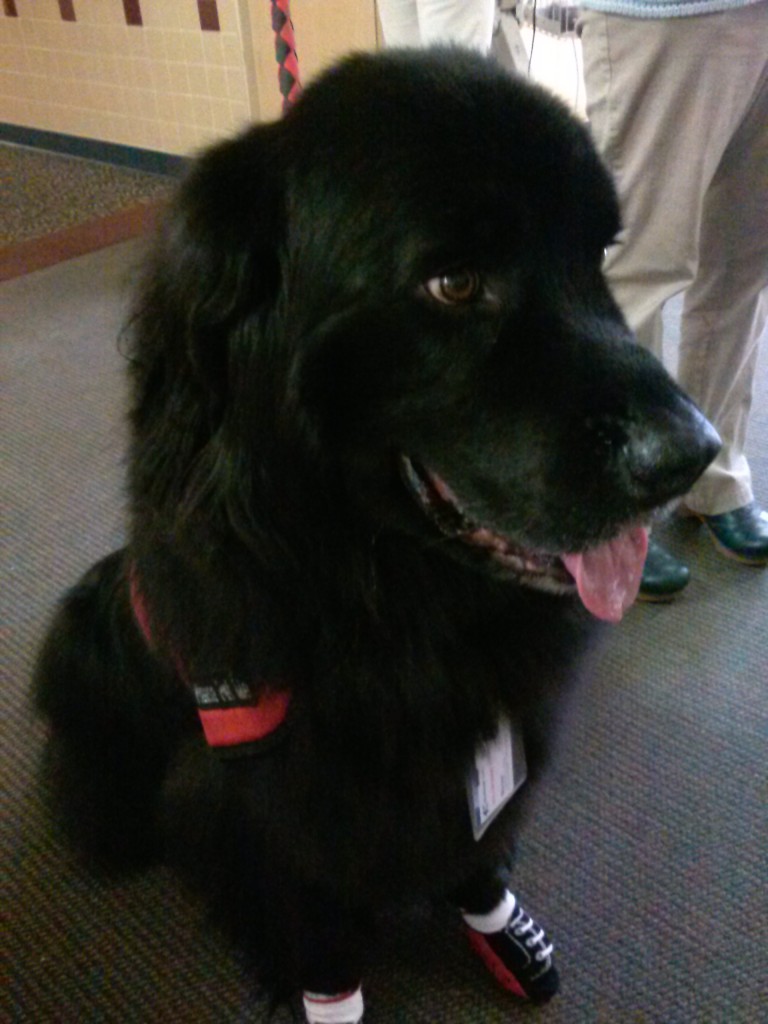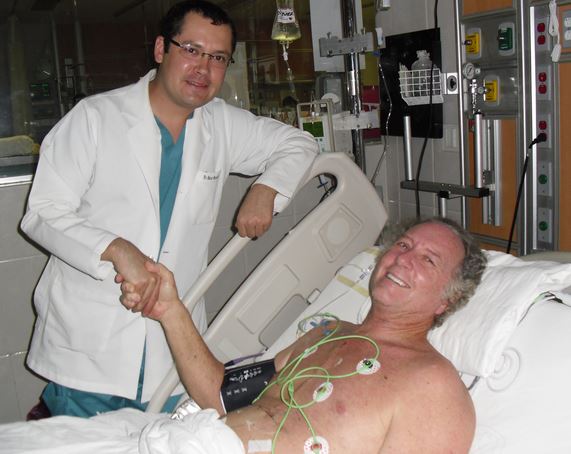May 16th, 2016 by Dr. Val Jones in Opinion
No Comments »
 *This blog post was initially published on the Barton Blog.
*This blog post was initially published on the Barton Blog.
When doctors complete their residency training, they are under a lot of pressure to land their first “real job” quickly. Student loan deferments end shortly after training, and whopping debt faces many of them. But choosing a job that is a good long-term fit can be difficult, and gaining a broader exposure to the wide variety of options is key to success. That’s why “try before you buy” can be an excellent strategy for young physicians.
Locum tenens agencies such as Barton Associates work with healthcare organizations and practice locations across the country to offer a variety of temporary assignments for physicians.
These agencies negotiate your salary and call schedule. They also arrange the logistics, covering the costs of travel and accommodations. Once the doctor and the facility agree to terms, the physician simply arrives on the required date(s) and takes on the responsibilities requested. It’s a hassle-free, minimal-commitment arrangement that pays an hourly or daily rate for work.
Locum providers are given the convenient option to receive direct deposits to their bank accounts at regular intervals. Physicians can travel as broadly as they like for assignments, and the agency credentialing team works to efficiently complete any needed paperwork for new licenses and hospital privileging.
I enjoyed “living la vida locum” for six years before I landed my dream job. That’s a long time to be living out of a suitcase, and I doubt that most of my peers would want to do it for that long of a stretch. But an amazing thing happened during those years: With each new hospital experience, I gained insight and knowledge about my specialty. By rubbing elbows and networking with a wide swath of patients and experts across the country, I became a sought-after consultant in my own right.
I experienced different ways of delivering healthcare — from critical access hospitals to bustling academic centers. I learned about best practices and creative solutions that administrators and clinical staff had discovered to improve care quality, given the limitations of Medicare rules and private insurance restrictions.
When I was hired as the Medical Director of Admissions at St. Luke’s Rehabilitation Institute in Spokane, Washington, I came armed with creative ideas and a wealth of experience to draw from. I was a highly seasoned physician who had been exposed to the widest variety of patient populations and practice styles. I knew all about the unique struggles, successes, and solutions of various rehab centers across America. I now leverage that experience to drive change at my institution, and I am virtually unfazed by new problems and challenges.
The career value of locum tenens work is extraordinary. Take the time to look around you at each assignment. Learn what works and what doesn’t work, and file it away for future reference.
Like a bumblebee cross-pollinating hospital or medical practice “flowers,” locum tenens providers have the potential to drive change like no one else. When you’ve seen it all, your insights become invaluable, and you gain the maturity to know when a full-time job is the right cultural fit. Choosing the right job, on your terms and in your time, is the key to finding happiness in healthcare.
March 17th, 2015 by Dr. Val Jones in Health Tips, Opinion
3 Comments »

Moose, A Therapy Pet In Idaho
As a traveling physician, I’m often asked if I have a favorite place to work. Since I have licenses in 14 states, I have an usual vantage point from which to compare hospitals. I know that people who ask this question presume that my answer will be heavily influenced by the town where the job is located, and all the associated extra-curriculars, environmental peculiarities (ocean, mountains, desert), and potential amenities. The truth is that very little of that is important. Over the years I’ve found that it doesn’t matter so much where you are, as whom you’re with.
As I’ve argued previously, true quality health care is not always predicted by reputation or academic prowess. It has a lot more to do with local hospital culture, and how invested the staff are in giving patients their all. In my experience, some of the very best institutions (in terms of reduced medical error rates, evidence-based practices, and an avoidance of over-testing/treating) are in rural areas. They are not on the America’s Best Hospitals list, but are hidden gems scattered throughout the country. Of course, I’ve also seen some abysmal care in out-of-the way places. My point is that hospital location and reputation is not directly correlated with career satisfaction or excellent patient care.
My favorite hospital is populated by perpetually cheerful staff. Their energy, enthusiasm, and constant supportiveness is remarkable. I once commented that I felt like a therapy pet when I arrived on the unit – everyone was so happy to see me, it was as if I were a golden retriever who had shown up for play time. That feeling can carry me through the most difficult work hours or complicated patient problems. It is so emotionally sunny in that hospital that the surrounding environment could be an Alaskan winter and I’d be ok with it.
Alternatively, there are hospitals where I’m regularly greeted with all the affection that Jerry shows Newman in the Seinfeld sitcom. You know, the eye-rolling, sarcasm-dripping “Helloooo Newman…” Yeah. In those hospitals where I’m made to feel like an unwanted nuisance, time goes by so slowly I can barely stand it. I fight to keep my spirits up for my patients’ sakes, but in the end, the negativity takes its toll. I could be located in the middle of northern California wine country at harvest season and want to get the first flight out. Seriously, your micro-environment is so critical to your happiness. Do not underestimate the importance of liking your peers when you choose your job.
Which leads me to my final point – if you’re thinking about relocating, but aren’t sure if you’ll be happy, why not “try before you buy?” Become a traveling physician (aka locum tenens) for a while to gain some exposure to different places and work environments. Your pre-conceived notions may be off-base. You may fall in love with a place you wouldn’t have thought twice about based on a state map… Because a map won’t tell you where you’ll be welcomed with open arms, versus ostracized by hostile peers. Find out if you’ll be a Newman or a therapy pet at your next hospital. It makes all the difference in the world.
September 15th, 2014 by Dr. Val Jones in Opinion
2 Comments »
 Judging from recent articles, surveys, and blog posts, the medical profession is remarkably demoralized. Typical complaints range from “feeling like a beaten dog” to “living in humiliating servitude,” to being forced to practice “treadmill medicine.” Interestingly, the public response to these complaints is largely indifferent. The prevailing attitude (if the “comments sections” of online articles and blog posts are representative) seems to be unsympathetic: “Poor doctors, making a little less income and not being treated like gods anymore? You have to do extra paperwork? You have to work long hours? Welcome to the real world, you whiners!”
Judging from recent articles, surveys, and blog posts, the medical profession is remarkably demoralized. Typical complaints range from “feeling like a beaten dog” to “living in humiliating servitude,” to being forced to practice “treadmill medicine.” Interestingly, the public response to these complaints is largely indifferent. The prevailing attitude (if the “comments sections” of online articles and blog posts are representative) seems to be unsympathetic: “Poor doctors, making a little less income and not being treated like gods anymore? You have to do extra paperwork? You have to work long hours? Welcome to the real world, you whiners!”
But thank goodness that practicing medicine is more nuanced than the Facebook stream of hostility that we are subjected to on a daily basis. If patients spoke to me the way online comments read, I’d surely have quit medicine years ago. But my reality is that patients are generally grateful, attentive, and respectful. This could be because I work in inpatient rehabilitation medicine, a place where patients are screened for motivation to participate in their care, but I don’t think that’s the whole story. I have experience working in other settings across the country (including Emergency Departments), and I have found a significant number of good-natured, engaged patients there too.
I think that to some degree our attitudes shape our work environments. Patient and peer dispositions are in part a reflection of our own. Try approaching a frightened, sick patient with an arrogant, dismissive tone and see how your professional relationship with them (and their families) develops. There is a negative cascade that physicians can trigger (perhaps unwittingly) when they are rushed, curt, or inattentive. Beginning every new patient relationship with a caring, respectful, detailed history and physical exam lays a foundation of trust for future interactions. Once you have established that positive rapport, the daily grind (along with what my friend, Dr. Steve Simmons, has nicknamed ‘C.R.A.P.P.’ – Continuous Restrictive And Punitive Paperwork) is much more bearable.
As physicians we have the power to make our careers as meaningful or soul-sucking as we choose. Reducing the C.R.A.P.P. in our work lives can help (I’ve tried outpatient, “concierge style” practices and inpatient locum tenens assignments with good success), but that’s not the most important factor in enhancing work satisfaction. The relationships built by allying ourselves with patients, and shepherding them through this broken system, are where the rewards lie. They hold the keys to our professional fulfillment because nothing can beat the joy of helping those in need.
How do I know that patient appreciation is enough to make medicine worthwhile?
Because I still don’t hate being a doctor.
May 5th, 2014 by Dr. Val Jones in Expert Interviews, Health Policy, Opinion
1 Comment »
 It’s no secret that most physicians are unhappy with the way things are going in healthcare. Surveys report high levels of job dissatisfaction, “burn out” and even suicide. In fact, some believe that up to a third of the US physician work force is planning to leave the profession in the next 3 years – an alarming statistic.
It’s no secret that most physicians are unhappy with the way things are going in healthcare. Surveys report high levels of job dissatisfaction, “burn out” and even suicide. In fact, some believe that up to a third of the US physician work force is planning to leave the profession in the next 3 years – an alarming statistic.
Direct primary care practices are touted as the best way to restore patient and provider satisfaction. Those brave enough to cut out the “middle man” (i.e. health insurers, both public and private) find a remarkable reduction in billing paperwork, unrecovered fees, and electronic documentation requirements. I know many physicians who have made the switch and are extremely happy to be able to spend most of their time in direct patient care, unfettered by most rules, regulations, and coding systems. They can solve problems via phone, email, text, video chat, or in-office as the need arises without having to worry about whether or not their manner of interaction will be reimbursed.
Direct primary care is probably the best way to find freedom and happiness in practicing outpatient medicine. But where does that leave physicians who are tied to hospital care due to the nature of their specialty (surgeons, intensivists, anesthesiologists, etc.)? Is there any way for them to find a brighter way forward?
I have found that working as a locum tenens hospital-based physician has dramatically improved my work satisfaction, and it may do so for you too. Here’s why:
1. You can take as much time off as you want, anytime you want. Do not underestimate the power of frequent vacations on your mental health. The frenetic pace of the hospital is much more tolerable in short doses. My attitude, stamina, and ability to stay focused is dramatically improved by working only 2-3 week stretches at a time. When I feel good, I can spread the cheerfulness, and I am happy to spend longer hours at work to give my patients more of my time.
2. You can avoid most political drama. Hospitals are incredibly stressful environments filled with hierarchical and territorial land mines. Being a short-timer allows you to avoid many conflicts. Administrators never nag you, or hold you responsible for perceived departmental deficiencies. You don’t need to attend committee meetings or become involved in personality quirk arbitrage. You can stay above the fray, focusing purely on the patients.
3. You learn all kinds of new things. Exposure to different patient populations, hospital expertise and different peer groups exposes you to a broader swath of technology and humanity. No longer will you be tied to the regional practice idiosyncrasies of a single hospital – you’ll learn how to tackle problems from many different angles. That knowledge earns you respect, and serves to cross-pollinate your own specialty, making you – and those you learn from – better doctors.
4. You are free to leave. There’s something refreshing about knowing that you can leave a place that you don’t like without any repercussions. No matter how unpleasant a locums assignment, it will end, and you can saunter off to brighter pastures.
5. You make more money. Believe it or not, locums work can be quite lucrative if you find the right assignments. I know a team of hospitalists who travel the country together, negotiating higher rates since they are a “one stop” solution. Their housing, travel, and cars are paid for by the agency, and they have take home pay (before taxes) around $350K per year. I personally think that working that many hours as a locum tenens physician kind of defeats the purpose of avoiding burn out, but some people like to do it that way.
6. You can live in the warm states in the winter, and the cold ones in the summer. Enough said.
7. You can try before you buy. Maybe you’re not sure where you want to sink down career roots. Or maybe you’re not sure you’ll like living in a certain city or part of the world? Maybe your family isn’t sure they want to move to a new location? Locum tenens assignments are the perfect way to try before you buy.
8. You can use your experience to become an excellent consultant. With long term exposure to various hospital systems, you are in a unique position to develop an encyclopedic knowledge of best practices. Sharing how other hospitals have solved their challenges can spark reform at other institutions. You can become a real force for positive change, not just on a micro level, but system and state-wide.
Working as a locum tenens physician may enhance your career satisfaction and promote professional advancement. What it will not solve, however, is the following:
1. You still have to work within the framework of bureaucracy endemic to hospitals. You’ll need to learn to use multiple different EMR systems and fill out most of the same paperwork that you do as a full-timer. This is painful at first, but once you’ve mastered the most common EMR systems (I’ve only really encountered 5 different ones in 2 years of locum tenens work) you’ll find a clinical rhythm that fits into most frameworks.
2. You will be living out of a suitcase. If the disruption of frequent travel is too much for you (or your family) to bear, then perhaps the locums lifestyle is not for you.
3. You will be annoyed by the process of getting multiple medical licenses and hospital credentialing. Agencies try to help with this burden, but mostly, you’ll need to suffer through this part yourself.
4. You will have to live with some degree of uncertainty. Part of the nature of working as a locum tenens physician is that clients (hospitals) change their minds frequently. They try to fill open positions with local staff or hire additional full-timers, using locums as their more expensive back ups. Assignments fall through frequently, so you’ll need to be ready to change course quickly.
Overall, I believe that locum tenens work can provide the practice freedom that many hospital-based physicians crave. If you’re eager to get off the unrelenting clinical treadmill, this is an easy way to do it. At a recent assignment near New Hampshire, I mused at the license plates that I passed on my way to work: “Live free or die” is their state motto. And I think it captures my sentiments exactly.
December 28th, 2011 by RyanDuBosar in Research
No Comments »

The vast majority of U.S. physicians are moderately to severely stressed or burned out on an average day, with moderate to dramatic increases in the past three years, according to a survey.
Almost 87% of all respondents reported being moderately to severely stressed and/or burned out on an average day using a 10-point Likert scale, and 37.7% specifying severe stress and/or burnout.
Almost 63% of respondents said they were more stressed and/or burned out than three years ago, using a 5-point Likert scale, compared with just 37.1% who reported feeling the same level of stress. The largest number of respondents (34.3%) identified themselves as “much more stressed” than they were three years ago.
The survey of physicians conducted by Physician Wellness Services, a company specializing in employee assistance and intervention services, and Cejka Search, a recruitment firm, was conducted across the U.S., and across all specialties, in September 2011. Respondents Read more »
*This blog post was originally published at ACP Hospitalist*
 *This blog post was initially published on the Barton Blog.
*This blog post was initially published on the Barton Blog.


 Judging from recent
Judging from recent  It’s no secret that most
It’s no secret that most 








